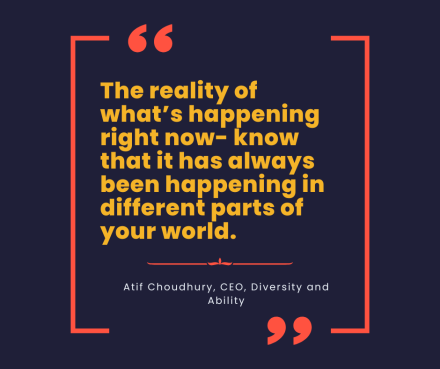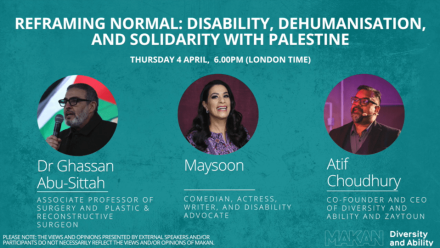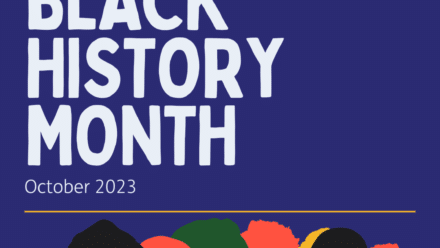Thugs and Terrorists: The Inevitable Outcome of Anti-immigration Rhetoric
7th August 2024 by Scarlett James
Author’s note: This article is an opinion piece reflecting my views and interpretations as someone with an educational background in political and historical analysis. The aim is to share insights and perspectives on the topic, encouraging thoughtful discussion and reflection.

The UK is once again in the midst of a significant and distressing event. Riots are happening up and down the country, driven by anti-immigration rhetoric that harms non-white communities, especially Muslims and refugees. Many of us feel a deep sadness, fear for our communities, and shame at the hate and violence we’re witnessing. It’s easy to want to look away, to keep our heads down and just carry on, but we must not wait for our children to study these events to start reflecting on how we’ve got here and what is truly happening.
Thugs or Terrorists?
The media has thrown around a lot of terms to describe the people responsible for these acts of injustice. Are they thugs, or are they terrorists? Both terms carry weight and are important for different reasons.
Thugs:
The riots began last week after the terrible killing of three young girls attending a dance class in Southport. Following misinformation about the suspect connected to the killings, a large group attended a vigil held in the girls’ memory. A vigil should be a peaceful display of mourning, respect and protest against injustice.
However, people travelled to this event with alcohol, indicating their lack of respect before they went on to cause chaos. This vigil devolved into violence focused on a mosque in the Southport area, leading to further demonstrations across the country. They raided and looted a Shoezone and a Greggs in Hull, claiming to do so “out of respect for the girls.” It’s not controversial to label this kind of behaviour as thuggish.
However, this behaviour is not just intended to cause chaos and unfocused harm. It is planned, and it’s political. Labelling those perpetrating these crimes as just thugs is a deliberate way for politicians and far-right campaigners to sidestep their responsibility in perpetuating the narrative fuelling this violence. For example, many Tamworth residents have noted that a local hotel that was petrol bombed was the same hotel that their Labour MP, Sarah Edwards, spoke about in Parliament just days ago, telling the Home Office that “Residents want their hotel back.”
Terrorists
Let’s look at the definition of terrorism:
“The unlawful use of violence and intimidation, especially against civilians, in the pursuit of political aims.”
The riots undeniably involved unlawful violence and intimidation. They’re directed at civilians to cause harm. In Manchester, a Black man was assaulted. A mosque in Liverpool was targeted, as well as the Mercure Hotel in Bristol, where some asylum seekers are being housed.
We can’t separate these acts of violence from the current political landscape. The anti-immigration rhetoric is a far-right political talking point. It’s rooted in fascism and isn’t based on facts; it’s driven entirely by xenophobia and racism.
How is the far-right movement fascist?
Fascism is a political ideology that seeks control and power for a specific group. It looks different worldwide, but it often arises during economic instability and distrust in institutions. These situations are then exploited to perpetuate scapegoating narratives against minority groups. The most well-known historical examples are Mussolini in Italy and Hitler and the Nazis.
There is a clear reflection between the events of the last week and Kristallnacht in Germany in 1938.
Kristallnacht: A Historical Parallel
Kristallnacht was a significant event in Nazi Germany that took place on the night of 9-10 November 1938. The name “Kristallnacht” refers to the shattered glass from the windows of these establishments that littered the streets.
It was orchestrated by the Nazi regime and targeted Jewish people across Germany and Austria. Civilians openly carried out coordinated attacks on Jewish-owned businesses and synagogues, and more than 1,400 synagogues and thousands of Jewish-owned businesses were vandalised or destroyed.
Compare this to last week, when groups were empowered to carry out acts of violence in the name of anti-immigration, attacking Mosques, businesses and individuals:
- Political discourse paved the way:
In both situations, the violence was planned and orchestrated openly. In Germany, that was because the Nazis had been sowing the seeds of deep anti-semitism in the wake of the Great Depression.
Now in the UK, during economic instability with the highest cost of living in decades, the far-right has pushed the topic of anti-immigration and ensured anti-immigrant and racist rhetoric is rife. With politicians endorsing the rhetoric and running on platforms of fearmongering, as Dame Sara Khan points out, leaving us vulnerable to this kind of violence. - Racism and xenophobia:
Fascist ideologies often include the belief in the superiority of one ethnicity over others. The Nazis propagated the notion of Aryan supremacy and considered Jewish people inferior, leading to systemic discrimination, violence, and, eventually, the Holocaust.In the UK, the far-right’s aim is undoubtedly racist and xenophobic. This is exemplified in the response to the Southport tragedy, the perpetrator was neither an immigrant nor a Muslim. Yet it has resulted in attacks on mosques and hotels housing migrants. They are primarily anti-Muslim, but their Islamophobia targets anyone they perceive as Muslim, which most often includes anyone who isn’t white. - Nationalism and exclusion:
Fascism promotes extreme nationalism, often defining national identity in exclusive terms.
The Nazis aimed to create a “pure” Aryan society, which involved excluding, persecuting, and ultimately attempting to eliminate those deemed “undesirable”.
In the UK, the far-right ‘wants Britain back’, disregarding the plethora of experiences of the many groups that make up our vibrant communities.
Both are stark examples of how fascism can manifest in acts of widespread violence and oppression.
The riots in the name of anti-immigration in the last week and their parallel with the acts of Nazis show the underbelly of this rhetoric and its undoubted willingness to use violence and inflict harm.
Anti-immigration isn’t just dangerous; it’s built on misinformation.
Myth One: Britain takes in too many asylum seekers and refugees.
The UN’s High Commissioner for Refugees Global Trends report for 2023 estimated that 117.3 million people are displaced from their homes worldwide. The UK does not have a high intake of refugees or asylum seekers relative to its population or in terms of total claims. According to the UNCHR, there are a total of 364, 051 refugees, asylum seekers and stateless persons living in the UK as of 2022, this is less than half a per cent of the population. Compare this to the island of Aruba, which has the highest ratio of refugees to the national population, one in five. Meanwhile, Iran has the highest total number of refugees, at 3.8 million (UNHCR, 2023).
The UNHCR also found that 80% of refugees are hosted by countries that produce less than 20% of the world’s economy.
Myth Two: Immigrants come to the UK as we’re too ‘soft’
Britain’s history with immigration is complex. Many people don’t understand the reasons behind immigration because they haven’t been taught about Britain’s colonial past. At its height, the British Empire covered a quarter of the world. While we can’t cover the many complexities of colonialism here, we can address some myths about immigration related to it.
Many asylum seekers and refugees stop in the first safe country they reach – around 69% (UNHCR, 2023) . However, others continue on to the UK because of cultural or social ties. As a country that once ruled over a quarter of the world, Britain has left a legacy of connections around the globe. People from former colonies often speak English, know British culture, have served in the British military, practise Protestantism—a religion established by a British king—and/or have family here.
After World War II, the UK actively invited people from the Commonwealth to help rebuild the country. In 1948, the British Nationality Act granted people from colonies the right to live and work in Britain. The government needed workers to fill post-war labour shortages and rebuild the economy. Many who came became manual workers, drivers, cleaners, and nurses in the newly established NHS (JCWI, 2024).
Myth Three: Immigrants, asylum seekers and refugees ‘sponge’ from the state
People who come to the UK later in life pay more taxes than those born here. According to HMRC’s data for 2018-19, overseas citizens working in the UK made roughly £42.4 billion in tax contributions to our economy, which is more than they received in benefits (Immigration Advice Service). The Office for Budget Responsibility has also demonstrated that more migrants benefit our economy and have a negligible impact on GDP per person (living standards) (Office for Budget Responsibility, 2024).
The negative impacts of reducing immigration have already been proven post-Brexit when we saw a shortfall of 330,000 workers in Britain (Centre for European Reform). With an ageing population, we want to attract and retain working-age people, by 2050, one in four people will be over 65 (NHS).
People like Nigel Farage and Suella Braverman know that immigration is good for our country. They are using immigration as a talking point and a scapegoat so they can take power and act in their interests, the interests of keeping the richest people rich and the poorest people poor.
Unity in the face of hate
While it is absolutely vital to reflect on the violence of the last week, we shouldn’t let that stop us from feeling hope and joy.
Our office is based in Brighton, where this weekend, 300,000 people watched the Pride parade, with anti-fascist protesters stopping the parade to protest Coca-Cola factories in Israeli settlements in occupied Palestine. There have been clean-ups up and down the country and counter-movements sending a message of unity and solidarity within our communities. Counter-protestors linked arms to prevent rioters from entering the Mercure Hotel in Bristol and bought the children staying inside gifts and sweets.
Support
Please seek support if you’re struggling with the ongoing issues.
- Check out our guide to self-care after discrimination
- Access our list of helpful mental health contacts
- Report hate crimes to the police
- Speak to Victim Support or explore their My Support Space Resource
- Report anti-muslim hate or islamophobia and receive specialised support from Tell Mama
- Get in touch with the islamophobia response unit


